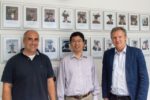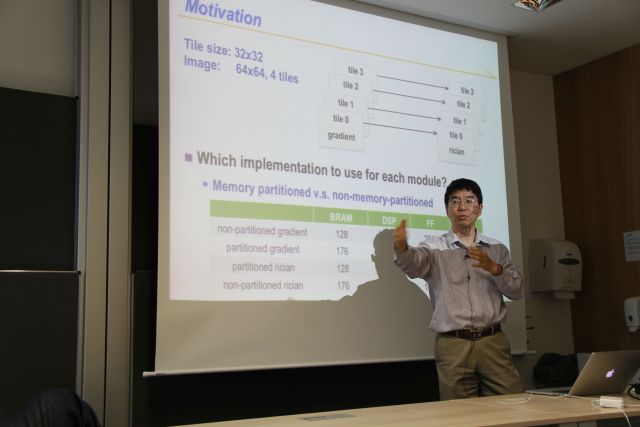19.09.2016 Vortrag „High-Level Synthesis and Beyond“, Chancellor’s Prof. Jason Cong, University of California, Los Angeles
Im Rahmen unseres SFB/TRR 89 „InvasIC“ Seminars wurde der o.g. Vortrag von Prof. Jason Cong gehalten.

Abstract:
Ten years ago in SOCC’2006, my group presented xPilot – the high-level synthesis (HLS) tool developed at UCLA for automatic synthesis of behavior-level C/C++ specifications into highly optimized RTL code. In the same year, the startup company AutoESL was formed to commercialize our research on HLS – an effort that many EDA companies tried but failed for over two decades. The AutoESL tool (renamed to Vivado HLS after Xilinx acquisition in 2011) becomes probably the most successful and most widely used HLS tool in the history, now available to tens of thousands of users from companies and universities worldwide. In this talk, I shall first share the lessons that we learned from our HLS project. Then, I shall discuss the exciting opportunity for customized computing in data centers enabled by a robust HLS technology. I shall discuss our recent research on (i) source-code level transformation and optimization for efficient accelerator designs, such as polyhedral-based data reuse optimization and code generation, uniform and non-uniform memory partitioning, and simultaneous computation and communication optimization; and (ii) datacenter-level runtime management for transparent and efficient accelerator utilization. I shall highlight some key progresses in these directions.

